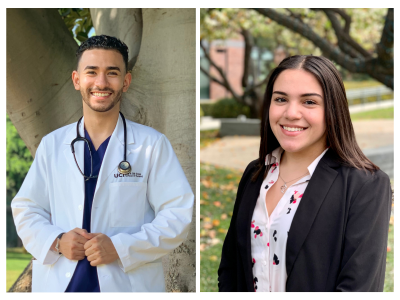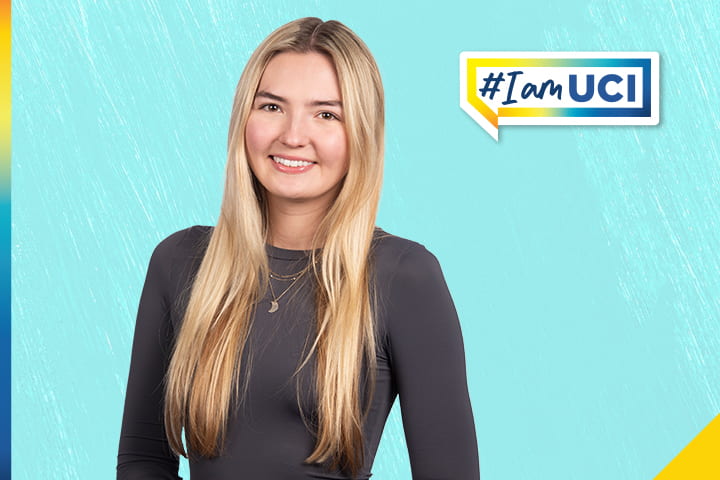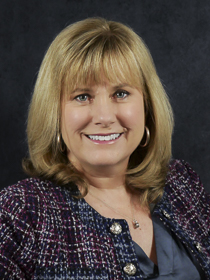
UCI Sue & Bill Gross School of Nursing student Michael Guerra (left) and Program in Public Health student Nayeli Inzunza are health coaches in Dawn Bounds’s GRIT study.
Two students who will be working with adolescent/caregiver pairs as health coaches in Dawn Bounds’s study, Garnering Resilience in Traumatized Youth and Families (GRIT), feel a personal calling to coach others toward better physical and mental health.
Read ‘We all have our stories, but nobody talks about them’ ›
Michael Guerra, a senior at the UCI Sue & Bill Gross School of Nursing, is no stranger to lending a compassionate ear.
Last year, he participated in Associate Professor Jung-Ah Lee’s home-visit caregiver intervention study. Based on this National Institute of Health (NIH)-funded study, Dr Lee and her team are examining the impact of mindfulness techniques on caregivers’ stress levels.
‘Nobody talks to caregivers’
There, Guerra learned the true power of simply listening.
“What I found out is that nobody talks to caregivers. Nobody asks them how they feel,” he says. “I would just listen, absorb everything and acknowledge them, because nobody really acknowledges their feelings.”
Guerra is also a soccer coach, where he finds himself mentoring his kids about their lives and futures.
A knack for encouraging others
And he loved the psychiatric rotation during his clinicals last year.
“I liked being able to talk to the patients and listen to them.”
He recalls motivating and encouraging one patient who had gone from bed-ridden to moving independently within weeks. “It feels good when you see things like that.”
He has always liked coaching and being coached; it comes from his brothers, two younger and one older.
“We’re always learning from each other and coaching each other. We’re really close.”
Becoming a nurse practitioner is one of Guerra’s goals, so he can continue coaching others toward better mental health because, he says, “Mental health is everything.”
Witnessing healthcare disparities
Nayeli Inzunza signed up as a health coach in the study in part because of her experience as her mother was being treated for brain cancer.
Inzunza, a public health major who plans to become a public health nurse, was her primary caregiver, attending all of her mother’s appointments and managing her care in northern California. She had put her education on hold to be able to be there.
“I never realized that even at a top-notch hospital, disparities still exist,” Inzunza says.
Her Spanish-speaking mother struggled to understand medical terminology that was being translated by a machine. When she became depressed, she was told she needed to speak to someone, only to find there was no Spanish-speaking psychiatrist on staff. Their care providers were by and large not people of color.
“A lot of the people caring for her really didn’t look like us,” she says. “That was really difficult.”
‘There’s so much to be done’
Inzunza’s mother eventually passed away. Feeling a sense of urgency because of what her family experienced, she decided to return to UCI right away.
“There’s so much to be done. I want to be someone who is going to make a change in the healthcare community.”
She relates to the struggles of adolescents, too, recalling her own childhood stressors, growing up poor in a low-income community and coping with inequities.
As a result of her experiences as a caregiver and an aunt to her sisters’ children, Inzunza plans to focus on pediatric oncology, but is flexible.
“I’m really open. I’ve just always wanted to work with kids. I feel like whatever I will do will come naturally.”




Muy bien hija que dios te bendiga